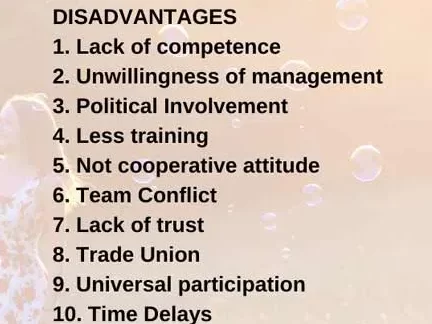LEADERSHIP AND QUALITIES OF A SUCCESSFUL LEADER | 20 QUALITIES OF A GOOD LEADER
LEADERSHIP AND QUALITIES OF A SUCCESSFUL LEADER. What are the 5 qualities of a good leader? Qualities of leadership. Each day, leaders must be willing to look into a mirror of self-awareness. Adventurous leaders know the topography—the map of the leadership world and the human brain.
Leadership qualities examples

8 Qualities of a Good Leader
- They understand that throughout the day from dawn to dark, and often well into the night they must continuously address four crucial aspects of leadership:
1. A good leader has an exemplary character.
- It is of utmost importance that a leader is trustworthy to lead others.
- A leader needs to be trusted and be known to live their life with honesty and integrity.
- A good leader “walks the talk” and in doing so earns the right to have responsibility for others.
- True authority is born from respect for the good character and trustworthiness of the person who leads.
2. A good leader is enthusiastic about their work or cause and also about their role as leader.
- People will respond more openly to a person of passion and dedication.
- Leaders need to be able to be a source of inspiration and be a motivator towards the required action or cause.
- Although the responsibilities and roles of a leader may be different, the leader needs to be seen to be part of the team working towards the goal.
- This kind of leader will not be afraid to roll up their sleeves and get dirty.
3. A good leader is confident.
- To lead and set direction, a leader needs to appear confident as a person and in the leadership role.
- Such a person inspires confidence in others and draws out the trust and best efforts of the team to complete the task well.
- A leader who conveys confidence towards the proposed objective inspires the best effort from team members.
4. A leader also needs to function in an orderly and purposeful manner in situations of uncertainty.
- People look to the leader during times of uncertainty and unfamiliarity and find reassurance and security when the leader portrays confidence.
5. Good leaders are tolerant of ambiguity and remain calm, composed, and steadfast to the main purpose.
- Storms, emotions, and crises come and go and a good leader takes these as part of the journey and keeps a cool head.
6. A good leader as well as keeping the main goal in focus can think analytically.
- Not only does a good leader view a situation as a whole, but can break it down into sub-parts for closer inspection.
- Not only is the goal in view but a good leader can break it down into manageable steps and make progress towards it.
7. A good leader is committed to excellence.
- Second, the best does not lead to success.
- A good leader not only maintains high standards but also is proactive in raising the bar to achieve excellence in all areas.

TEAMWORK:
- The process of working collaboratively with a group of people to achieve a goal.
- Teamwork is often a crucial part of a business, as it is often necessary for colleagues to work well together, trying their best in any circumstance.
ADVANTAGES AND DISADVANTAGES
ADVANTAGES |
DISADVANTAGES |
| 1. Team members have the opportunity to learn from each other. | 1. Some individuals are not compatible with teamwork |
| 2. Potential exists for greater workforce flexibility with cross-training. | 2. Workers must be selected to fit the team as well as requisite job skills. |
| 3. The opportunity provided for synergistic combinations of ideas and abilities.
| 3. Some members may experience less motivating jobs as part of a team. |
| 4. New approaches to tasks may be discovered.
| 4. Organizations may resist change. |
| 5. Team membership can provide social facilitation and support for difficult tasks and situations. | 5. Conflict may develop between team members or other teams. |
| 6. Communication and information exchange may be facilitated and increased. | 6. Teams may be time-consuming due to the need for coordination and consensus. |
| 7. Teams can foster greater cooperation among team members.
| 7. Teams can stymie creativity and inhibit good decision-making if “group think” becomes prevalent. |
| 8. Interdependent workflow can be enhanced. | 8. Evaluation and rewards may be perceived as less powerful; |
| 9. Potential exists for greater acceptance and understanding of team-made decisions. | 9. “Free-riding” within the team may occur. |
| 10. Greater autonomy, variety, identity, significance, and feedback for workers can occur. | 10. Less flexibility may be experienced in personnel replacement or transfer. |
TIME MANAGEMENT:
- “Time management” is the process of organizing and planning how to divide your time between specific activities.
- It is defined as the process of managing time effectively so that the right time is allocated to the right activity.
- Good time management enables you to work smarter not harder so that you get more done in less time, even when time is tight and pressures are high.
- Failing to manage your time damages your effectiveness and causes stress.
Steps in Time Management:

- Time Management includes:
- 1. Effective Planning
- 2. Setting goals and objectives
- 3. Setting deadlines
- 4. Delegation of responsibilities
- 5. Prioritizing activities as per their importance
- 6. Spending the right time on the right activity
1. Effective Planning:
- Plan your day well in advance.
- Prepare a to-do list or a “Task Plan”.
- Sort down the important activities that need to be done in a single day against the time that should be allocated to each activity.
- High Priority work should come on top followed by those which do not need much of your importance at the moment.
2. Setting Goals and Objectives:
- Working without goals and targets in an organization would be similar to a situation where the captain of the ship loses his way in the sea.
- Yes, you would be lost. Set targets for yourself and make sure they are realistic and achievable.
3. Setting Deadlines:
- Set deadlines for yourself and strive hard to complete tasks ahead of the deadlines.
- Do not wait for your superiors to ask you every time.
- Learn to take ownership of work. One person who can best set the deadlines is you.
- Ask yourself how much time needs to be devoted to a particular task and for how many days.
- Use a planner to mark the important dates against the set deadlines.
4. Delegation of Responsibilities:
- Learn to say “NO” at the workplace.
- Don’t do everything on your own.
- There are other people as well.
- One should not accept something which he knows is difficult for him.
- The roles and responsibilities must be delegated as per the interest and specialization of employees for them to finish tasks within deadlines.
- A person who does not know something needs more time than someone who knows the work well.
5. Prioritizing Tasks:
- Prioritize the tasks as per their importance and urgency.
- Know the difference between important and urgent work.
- Identify which tasks should be done within a day, which all should be done within a month, and so on.
- Most important tasks should be done earlier.
6. Spending the right time on the right activity:
- Develop the habit of doing the right thing at the right time.
- Work done at the wrong time is not of much use.
- Don’t waste a complete day on something which can be done in an hour or so.
- Also, keep some time separate for your calls or checking updates on Facebook or Twitter.
- After all human being is not a machine.
Advantages of Time Management:

1. Reduction in stress level:
- The reduction in stress level is the main content of time management.
- If you follow time management properly then you will get better results.
- Even you can relax while enjoying your work.
- Stress leads to spoiling of work schedule and distur1bed work schedule can never provide best results.
- The result will come undoubtedly but no one can say it will be best or worst.
2. Provides focus on the task:
- Time management initially provides relief from stress and later helps you in focusing your target and performance in the task.
- A focused person becomes successful in less time as compared to those who do more struggle for getting their target in life.
- People always desire to have a successful and enjoyable life and that can be obtained by keeping a focused view about everything and every step.
3. Decrease procrastination:
- There is much duration in life and it also brings fluctuation.
- The particular point in adopting time management is the ability to predict the results and control the situations.
- Managing time isn’t something that requires extra skills, the only need is to have some knowledge about how to and be dedicated to implementing it within your day-to-day activities.
4. Gain self-confidence:
- Self-confidence plays a vital role in human life and self-confident people always have a better life than dependent persons.
- The feel usually comes when you plan your work properly and take decisions on time for betterment.
- “Time management never takes your time, rather provides you extra time.”
- A person can do anything with confidence and self-trust leads a human being to the next level.
5. A way to the goal:
- Everybody has a desire to achieve his/her goal in life and dreams to get a relaxing future after attaining the target.
- Managing time allows you time where it has the most impact.
- Time management allows every human to spend time on the things that matter most to them.
- In this process, time management has a positive aspect to perform and people consider scheduling a better option.
6. Challenge your productivity:
- The capacity of everybody is similar just only habits differentiate in results.
- The people who score 100 out of 100 are also humans, not robots, the thing is that they follow their dreams.
- The condition turns turtle with your determination when you are planning for your next meeting as all the tasks are listed on the to-do list.
- You can use priorities while setting up the task execution sequence.
- Productivity is a challenge to face, as the process of productivity puts a human being on the heels.
- It’s a race which has to be worn by all, not by any single.
- In short, it is a great thing to adopt but also demands the capacity to handle the pressure.
7. Have an instinct for achievement:
- Achievement of a task is different whereas bang a series of success is a different task.
- A series of success falls in our kitty only then, when we make our efforts in a predefined way.
- Discipline and self-improvement are mandatory.
- The communication tools available in various support, synchronous as fixing meeting time in form of web conferencing and asynchronous with no fixed time to contribute as discussion board in form of interaction.
- The achievement comes with hardworking and dedicated behavior.
- Everyone has to adopt time management if they desire to have the taste of success.
8. Time to relax and do recreational activities:
- Recreation in this era of rush is a blessing and everybody wants it but only a few can grab it.
- Never miss any event. No need to worry about missing events as the workday is scheduled with reminders and alerts for urgent events.
- The blessed ones are those who do
work on time and adopt a timetable in their life to do day-to-day chaos. - A relaxed life gives motivation to human being and put them on the way to success.
- The recreational activities also give family life a boost.
- People feel more connected to their families.
- The one and the only thing to keep in mind is relations need time and love to boom.
9. Financial Soundness:
- Success brings financial benefits with itself.
- A human is always financially sound if he/ she has planned his/ her life properly and they maintain a timetable of their personal and professional life.
- The lifelong learning experience promotes the empowerment of individuals with knowledge.
- They can research and find information. The interpretation in it with sharing provides students opportunities to get network connectivity.
10. Become Healthy:
- Health is a blessing for humans and it can be achieved by proper maintenance.
- Time management is also helpful in making human life healthy; if a person will adopt scheduling in his life then he will save some time for doing exercise and other health-related works.
- So, he/ she will become healthy definitely.
- Once you have decided to plan your time, you have to discipline yourself and work on self-improvement with health as a key factor.
Disadvantages of Teamwork


Disadvantages of Time Management:
- It can be pretty hard for someone who doesn’t embrace punctuality and values time.
- There are very few downsides to time management.
- The main disadvantage is of more consumption of time in making up plans which easily turns out to be against.
- It can make human life mechanical too.

1. Non-clear Objectives:
- Productive behavior is one of the main goals of time management.
- Sometimes, it leads to non-clear objectives which usually struck people for worse.
- An unaware person doesn’t know what to do?
- If you are not being able to do better management of workload, you will get more struck in non-done tasks in no time.
2. Mismanagement:
- Organized results in less rework and mistakes but excess organizing craze leaves a person in blunder.
- The items, details, and instructions are if forgotten then lead to extra work and blame of mismanagement.
- A person has to do a task more times if he forgets something. It will lead to fatigue and it happens because of predictive behavior.
3. Can’t say “no”:
- You might have forgotten an appointment or missed a deadline and all this happened because of working on others’ tasks as saying ‘no’ will be tough for you. Such crazy situations incline life friction.
- You can avoid creating such problems by planning and preparing exactly.
- Nobody can create more time but it can be used in a better way by managing time undoubtedly.
- It’s always better to keep back because people simply can’t say no to anyone.
4. Obstacles:
- Simple actions like shifting commute or getting work done early, produce more issues in life.
- Time management leads you towards an obstacle.
- When you know what you need to do, you hate wasting time in idle activities and that leads to disputes and disturbances.
- Instead of thinking about what to do next, concentrate on steps ahead of work, as anything can go wrong.
- The people face many problems due to it.
5. Inactivity:
- The common misconception makes time management an extra effort.
- On the contrary, proper time management makes human life easier and inactive.
- If things are asking for less effort than the usual time, then the consumption of time leads to dullness.
- Manage time for Improving life, as time management is all about spending time in the right places, and on the right things but sometimes the obsession
for doing right makes your life stagnant.
6. Load of different works at one time:
- When you work according to time management, then sometimes in overconfidence you take too many tasks in hand.
- That particular condition leaves you in total blunder.
- People keep too many expectations from you just because of your flaunting behavior and at last, you feel a load of work on your shoulders.
- And such confusion creates a mismanagement situation.
7. Fatigue and stress become part of life:
- Fatigue and stress are a common problem that leads you to a tired phase.
- The tiredness leads a human being to be irritated and fed up with life.
- They also feel demoralized because they, again and again, think about their unsuccessful attempt at adopting time management in their life.
- They consider their unsuccessful attempt as a halt in their way and leave interest in all things.
- The majority of people make themselves prone to diseases.

WORK ETHICS:
- Work ethic is a value based on hard work and diligence.
- The belief is that work has a moral benefit and an inherent ability to strengthen character.
Five Factors That Demonstrate a Strong Work Ethic:
- Integrity
- Sense of Responsibility
- Emphasis on Quality
- Discipline
- Sense of Teamwork
GOOD MANNERS AND ETIQUETTE:
- Good manners cost us nothing but may win almost everything.
- They are the skills of making people feel easy and comfortable.
- We can have better relationships with people we know and meet in day-to-day life just by behaving well.
- Courtesy, politeness, or having good manners are about respecting others and yourself.
- If you show good manners everywhere you go, then you are more likely to encourage others to behave in the same way towards you.
THINK – How would you feel if someone?
- Never say ‘Please’ or ‘Thank You’ when you help them?
- Shares your things but never shares anything of theirs?
- Snatches the remote, while you are watching TV?
Good manners at home:
- Help others at home.
- Say ‘please’ and ‘thank you’ whenever it is required.
- Never read letters or messages that belong to others.
- Never stay in the bathroom longer than the time required.
- Never talk back or put when scolded.
- Never tease or tag other members of the family.
- Feel and say sorry, in hurt anyone’s feelings.
- Don’t switch television programs to suit me.
Hold the door open for the person coming in, especially if he is carrying something.
- Knock at the door before entering the home of others.
- Share and not grab or keep good things for me.
- Get up in the morning as soon as I am called.
- Keep me and my space/room clean.
- Go for meals on time.
- BODY LANGUAGE | 10 TIPS ON HOW TO USE BODY LANGUAGE TO YOUR ADVANTAGE
- SELF ESTEEM: HIGH OR POSITIVE SELF ESTEEM V/S LOW SELF ESTEEM
- Stress Management
- https://youtu.be/gdqwKgc3UbI
- https://youtu.be/HE3HNqagPnE
- https://youtu.be/GAgS13qrdSY
- https://youtu.be/bk4ERJ3MkCE
- https://youtu.be/1yG-G9B4pkQ
- https://yeshuafoundation.in/
- https://youtu.be/PFnJvUNK6t0






